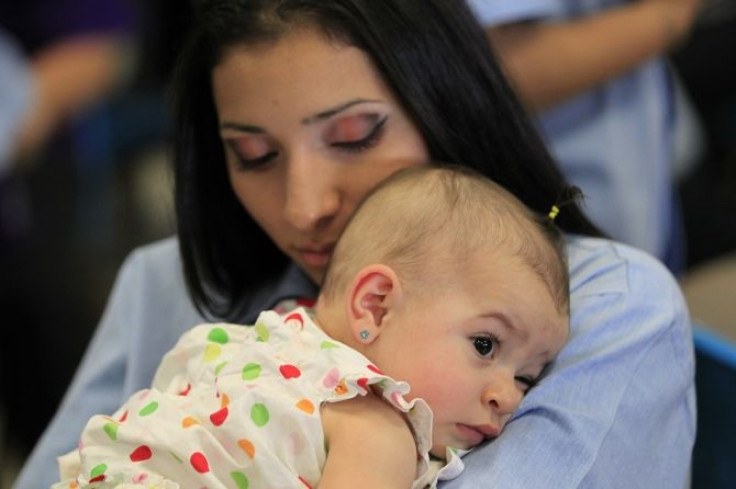Delivering a Large Baby Increases Breast Cancer Risk for Mother

Having a large baby doubles the risk of breast cancer, a new study says.
According to researchers, giving birth to a large infant is a strong and independent risk factor for breast cancer.
Results are based on analysis two large studies that have collected data from thousands women over the past few decades.
Researchers say that a large baby creates a 'pro-carcinogenic environment' during pregnancy that ups the risk of women developing breast cancer later in life.
"We also found that women delivering large babies – those in the top quintile of this study, which included babies whose weight was 8.25 or more pounds – have increased levels of hormones that create a 'pro-carcinogenic environment.' This means that they have high levels of estrogen, low levels of anti-estrogen and the presence of free insulin-like growth factors associated with breast cancer development and progression," said lead author Dr. Radek Bukowski, professor of obstetrics and gynecology in the Division of Maternal-Fetal Medicine at the University of Texas Medical Branch at Galveston.
The first study used by researcherswas The Framingham Offspring Birth History Study, which has maintained records of generations of women. Researchers studied medical history of the 410 women from this study.
In this study, almost 7.2 percent women were later diagnosed with breast cancer. Researchers found that having large infants raised the risk of breast cancer development by two and half times.
The second study was The First and Second Trimester Evaluation of Risk for Aneuploidy that collected information related to pregnancy hormones in 24,000 women from many parts of the U.S. This study had records of estriol (E3), anti-estrogen alpha-fetoprotein (AFP) and pregnancy-associated plasma protein-A (PAPP-A) - hormones that affect birth weight and breast cancer risk.
Women who had large babies had a 25 percent increased risk of having a high E3/AFP ratio and PAPP-A concentration.
"Recent animal studies have suggested that breast stem cells, which are involved in the origins of breast cancer, may increase or decrease their number in response to hormone exposures, including ones during pregnancy," added Dr. Bukowski.
"They [breast stem cells] retain a 'memory' of prior hormone exposure, which could explain the increased risk of breast cancer seen following pregnancy, especially in women with a large birth weight infant. The hormones create a long term effect that may lead to breast cancer later," added Dr. Bukowski.
Ways to reduce risk of breast cancer.
About 80 percent of breast cancer cases are due to genetic factors. Research has also shown that women who were heavier at birth and those who give birth to large babies are also at risk for developing breast cancer.
"Women can't alter their pregnancy hormones, but can take steps to increase their general protection against breast cancer," said Dr. Bukowski
Researchers say that breastfeeding, having more than one child, following a healthy diet and exercise may reduce breast cancer risk.
The study was published in the journal PLoS ONE.



























